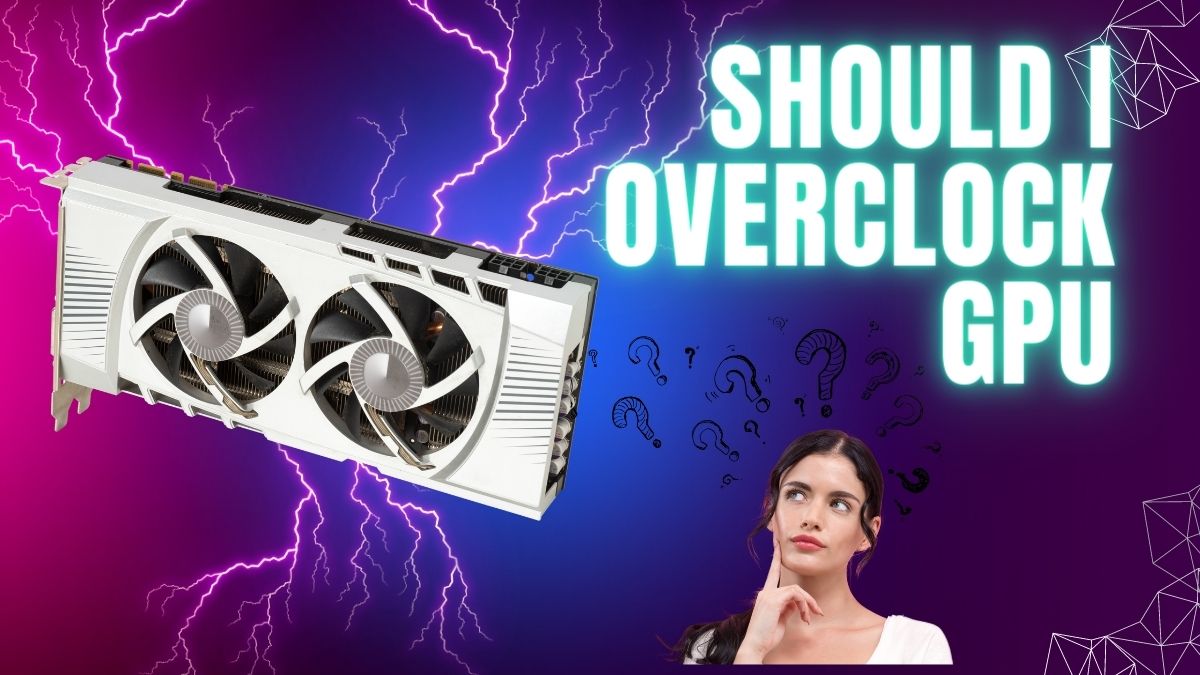With the constant advancement in computer hardware, enthusiasts and gamers are always looking for ways to maximize the performance of their systems. One popular method is overclocking, which involves pushing the components beyond their factory-set specifications to achieve higher clock speeds.
While CPU overclocking is widely discussed, the question of whether to overclock a graphics processing unit (GPU) remains. In this article, we will explore the pros and cons of GPU overclocking to help you make an informed decision.
What is Overclocking?
Before delving into the specifics of GPU overclocking, it’s crucial to have a basic understanding of what overclocking entails. Overclocking refers to increasing the clock speed of a component, such as a CPU or GPU, beyond its default frequency. The purpose is to extract additional performance by making the component work at a faster rate than intended by the manufacturer.
Pros of Overclocking GPU
Increased Performance
One of the primary advantages of GPU overclocking is the potential for increased performance. By pushing the clock speeds higher, you can achieve higher frame rates in games and smoother graphics rendering. Overclocking can be especially beneficial for gamers who want to squeeze out every bit of performance from their systems.
Cost-Effective Performance Boost
Overclocking provides a cost-effective way to boost your GPU’s performance. Instead of investing in a new graphics card, you can maximize the potential of your existing one. This can be particularly useful for individuals on a tight budget who still desire better gaming experiences.
Tailored Performance
Every GPU is unique, and overclocking allows you to customize the performance to suit your specific needs. By fine-tuning the clock speeds, you can optimize your GPU’s performance for the games or applications you use most frequently. This level of customization can result in a smoother and more enjoyable user experience.
Cons of GPU Overclocking
Increased Power Consumption and Heat Generation
Overclocking a GPU leads to an increase in power consumption and heat generation. When you push the GPU beyond its factory-set specifications, it requires more power to operate at higher clock speeds. Consequently, your system may consume more electricity and generate more heat, which can affect stability and overall system performance.
Reduced Lifespan
Operating a GPU at higher clock speeds and voltage levels can potentially reduce its lifespan. The increased heat and power consumption put additional stress on the GPU’s components, which may lead to a shorter lifespan. It’s essential to consider this aspect when deciding whether to overclock your GPU.
Potential Stability Issues
Overclocking can introduce stability issues, including crashes, freezes, or graphical artifacts. Pushing a GPU beyond its limits can result in instability, as the components may struggle to handle the increased clock speeds. It requires careful testing and monitoring to find the optimal balance between performance and stability.
Warranty Void
It’s worth noting that overclocking your GPU typically voids its warranty. Manufacturers generally do not support or cover any damages resulting from overclocking. If your GPU develops a fault or stops working, you may not be eligible for a replacement or repair if it is determined that overclocking caused the issue.
Factors to Consider
- Cooling Solution: Proper cooling is vital when overclocking a GPU. Consider whether your system has adequate cooling capabilities, such as efficient fans and a well-ventilated case. Without proper cooling, the increased heat generated by an overclocked GPU can lead to thermal throttling, reduced performance, or even hardware damage.
- Hardware Limitations: Different GPUs have varying levels of overclocking potential. Some GPUs are known for their high overclocking headroom, while others may not overclock as well due to hardware limitations. Researching your specific GPU model and checking online forums or guides can help you determine the expected overclocking potential.
- Purpose of Use: Consider the primary purpose for which you use your GPU. If you primarily engage in gaming, overclocking may provide noticeable performance improvements. However, if your usage is limited to less demanding tasks like web browsing or office work, the benefits of overclocking may not be as significant.
Final Verdict
The decision to overclock your GPU depends on your specific needs, hardware, and tolerance for potential risks. Overclocking can provide increased performance and a cost-effective way to maximize your GPU’s potential. However, it also introduces potential drawbacks such as increased power consumption, heat generation, reduced lifespan, stability issues, and the risk of voiding the warranty.
Before proceeding with GPU overclocking, ensure that you have a suitable cooling solution, understand the hardware limitations, and consider the purpose of your GPU usage. Ultimately, an informed decision will help you determine whether overclocking is the right choice for you.
